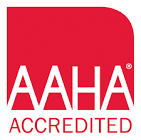Are you prepared for a disaster? Disasters preparedness is important. This guide is to help ensure you are ready for a disaster such as a tropical storm, hurricane, flood, tornado, or fire.
If your pet is boarding at Pearland Animal Hospital and an evacuation order is issued, please plan to pick up or have someone pick up your pets 24 hours prior to evacuation. The doctors and staff at Pearland Animal Hospital have families and pets to evacuate themselves and may not be able to take your pet with them. If your pet is left at Pearland Animal Hospital during an evacuation please be aware that your pet may not be safe and it may not be possible for someone to get to your pet right away due to hazardous conditions. Personnel will return to the facility when emergency personnel deem it safe. Depending on the severity of the disaster this could be several days later. Pearland Animal Hospital will attempt to make updates on the website, Facebook & Twitter as often as possible.
How to be prepared for an evacuation
You need to plan on taking your pets with you in the case of an evacuation. Any pets that are left behind during a disaster are at risk.
Get your pet evacuation kit assembled in an easy-to-carry, waterproof container. Store is in an easily accessible location away from areas with temperature extremes. Be sure to replace the food, water and medications as often as needed to maintain their quality and freshness and in accordance with the expiration dates. Your kit should contain:
- 2 week supply of food (dry & canned if necessary)
- 2 week supply of water in plastic gallon jugs with secure lids
- Medications
- Batteries (flashlight, radio)
- Spare phone charger
- Cage/carrier (one for each animal, labeled with your contact information)
- Collar and Leash
- Stakes and tie-outs
- Manual can opener & Spoon (if canned food)
- Copies of veterinary records and proof of ownership (get ahead of time)
- Emergency contact list (personal and veterinarian)
- Familiar items to make pets feel comfortable (favorite toys, treats, blankets)
- Flashlight
- Trash bags for pet eliminations
- Litter pan, litter & scoop for cats
- Map of local area and alternative evacuation routes (in case of road closures)
- Newspaper or bedding
- No-spill water and food containers
- Paper towels
- Radio
You should also make sure your pets have identification (microchip, collar with tag, etc.). Microchips are permanent and cannot fall off or be removed. A microchip can be administered as a walk-in appointment at Pearland Animal Hospital.
You may be in your vehicle for extended periods of time during transport. Make sure your pets are in a comfortable carrier and are able to eat, have access to water, and void regularly.
Plan ahead. Know your destination ahead of time and plan out your route according to your local evacuation routes. Make sure you are able to take your pets to the place to which you’ll be evacuating and leave as soon as you can.
If you cannot or will not be evacuating, identify the safest place in your home to wait out a storm. All family members, including all pets, should stay in this area until it is safe. Keep animals on leashes or in carriers and again, make sure they have identification on them.
In the event we have to evacuate your pet for an internal disaster
There may be a situation where we have to evacuate your pet due to a local gas leak, fire or other unforeseen disaster. If this is the case, we will make every effort to remove your pet(s) from our facility and transport them to a safe location. We will do our best to contact you as soon as possible. Please make sure to always leave an emergency contact number for your pets when they are in our care.
Please contact us if you have any questions regarding our disaster preparedness plan.
Pearland Animal Hospital
1601 North Main
Pearland, Texas 77581
P: (281) 485-2496
F: (281) 485-0681
info@pearlandanimalhospital.com
www.pearlandanimalhospital.com
We have Facebook & Twitter!

